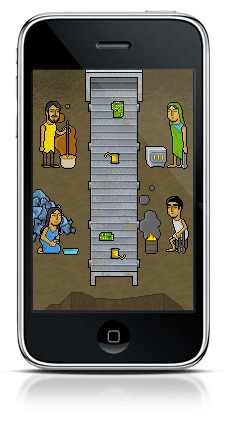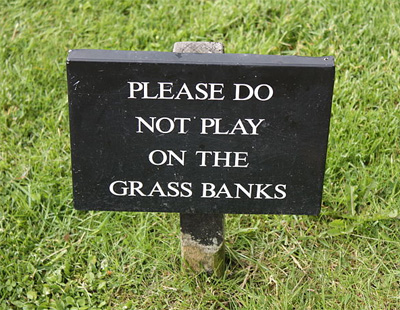
While our collective imagination has been gripped with the images of downtrodden folks in other parts of the world uprising in seemingly spontaneous acts of defiance, here at home, we late industrial consumers continue doing what we do best: passively and uncritically absorbing whatever is in front of us. In our zeal to dive into the next hot thing that the market offers us, we seldom have occasion to question what is absent—what is quietly being denied us—and what social costs are obscured by the price tag of a commodity.
Apple is an interesting contradiction in consumer society because, on the hand, it seems endlessly capable of producing new devices that we never knew we needed; yet, when we pick them up, they seem almost magical, enabling us to do things we hardly imagined—or, rather, to consume things in ways we never imagined. In light of its continual innovation and its capacity to generate “cool,” Apple is often seen as progressive organization. On the other hand, Apple is notorious for placing authoritarian controls on its products. As the old quip goes: “Linux is great at letting you do what you want to do (if you are willing to stare for hours at line code), Apple is great at letting you do what they want you do, and Windows is great at crashing.” Of even greater concern, Apple remorselessly outsources it labor to China’s most offensive factories, some of which recently received attention because they had to install nets around the buildings to end a spate of highly-public suicides.
Two recent artworks highlight the underside of Apple’s pristine white carapace.
On September 13th, 2011, Phone Story, an app that is part-game, part social commentary piece produced by Carnegie Mellon University Professor Paolo Pedercini, received international attention when is was banned from Apple’s App Store after a few short hours in circulation. The app’s website explains that:
Phone Story is a game for smartphone devices that attempts to provoke a critical reflection on its own technological platform. Under the shiny surface of our electronic gadgets, behind its polished interface, hides the product of a troubling supply chain that stretches across the globe. Phone Story represents this process with four educational games that make the player symbolically complicit in coltan extraction in Congo, outsourced labor in China, e-waste in Pakistan and gadget consumerism in the West.
Perdercini posted the ban notification that he received from Apple which explained that, according to its guidelines, apps cannot:
- depict violence or abuse of children
- present excessively objectionable or crude content
The censorship of the app is objectionable not only for the blatant power play that Apple made in silencing its critics; there is also a twisted sort of irony in its statement to Perdercini: In declaring the content of the app to be “excessively objectionable or crude,” Apple has, implicitly, endorsed this statement as a description of its own behavior because, of course, the app was about Apple’s business practices. This act of censorship also raises grave concerns over whether markets can be trusted to ensure the free flow of politically important information in a democratic society. The problem with Apple’s “walled garden” approach to the Web is that the walls appear to keep voices of dissent or even self-reflexivity away from the garden.
The Agony and the Ecstasy of Steve Jobs
Another work, by monologist Mike Daisey, relives Daisey’s journey to China to observe the conditions in which Apple products are made. Though it might appear, at first glance, to be a polemic against Apple; The Agony and Ecstasy of Steve Jobs is, in fact, a tale of Daisey’s personal conflict between his love, as a consumer, for Apple devices, and his disgust, as a human being, for Apple’s labor practices.

Daisey’s monologue is not only significant as a work of art, but also a piece of investigative journalism. Daisey traveled to a factory complex—or, perhaps, more accurately, a small industrial city—in Shenzhen, China that employs almost one million people and was able to see firsthand the conditions of workers in Apple’s factories by adopting the guise of an American businessman and investor. Daisey also located and spoke with Chinese labor activists militating against the working conditions in local factories. These organizers faced certain death if caught by the authorities.
Daisy discusses the monologue in a Tech Crunch interview with Andrew Keen titled “Exposed: Apple’s Terrible Sin in China.”




Comments 5
Julie Fischer — September 28, 2011
Thank you for your thoughts and links. I remember the clamor over iPhone Girl (as well as the infantilizing, racialized fantasies users made up about her). The photos became viral in part because, like Daisey talks about in his interview, iPhone Girl represented a cognitive snip to the seamlessness Apple relishes in. Her photos disrupted the Apple consumer’s imagination of the clinical, clean, white Apple store magically pulling iPhones from thin air because the iPhone was crafted by real hands, a fact that literally couldn't be ignored in its display (iPhone Girl was making peace signs with both hands in one photo).
Theory Meets Art: What Apple has to Hide » OWNI.eu, News, Augmented — September 29, 2011
[...] This post was originally published on Cyborgology [...]
Theory Meets Art: What Apple has to Hide | Leaders Vision — October 8, 2011
[...] more: thesocietypages.org Bookmark on Delicious Digg this post Recommend on Facebook Buzz it up Share on Linkedin Share on [...]
Gamification, Playbor & Exploitation » Cyborgology — October 15, 2012
[...] of goals other than profit (see, for example, Foldit and Leafsnap). Molleindustria (which achieved recent fame for it’s Phone Story game) has, arguably, gamified politics in a radically subversive [...]
Gamification, Playbor & Exploitation « PJ Rey's Sociology Blog Feed — December 27, 2012
[...] of goals other than profit (see, for example, Foldit and Leafsnap). Molleindustria (which achieved recent fame for it’s Phone Story game) has, arguably, gamified politics in a radically subversive way. [...]